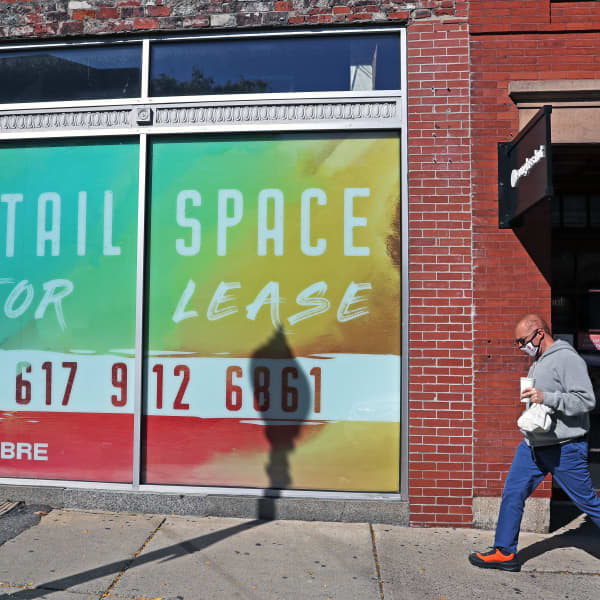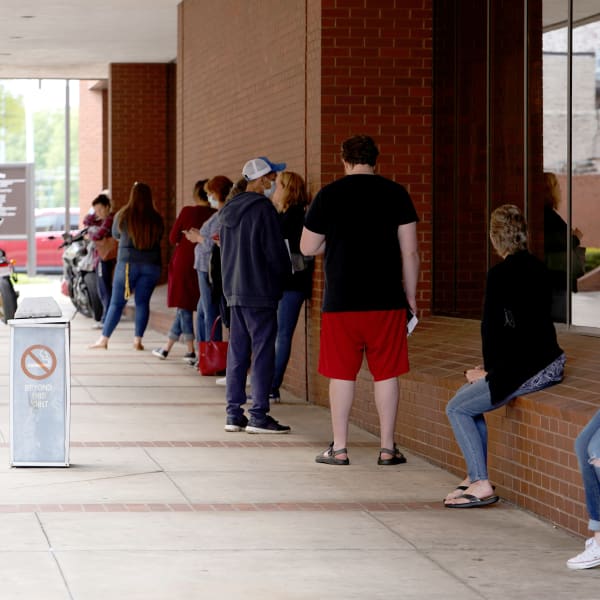Small-business owners will be digging into details of the tax-reform plan, already leaked to the press, that GOP leaders and President Trump will officially announce later today. For small business owners, one focus will be on a reported 25 percent rate for pass-through business income, which is paid by the majority of the 28 million small businesses in the U.S. Tax reform related to the expensing of investments and interest paid on investment financing are also important. But tax experts say it's critical for small-business owners to first be on top of their effective tax rate. Business owners are not as on top of their tax situation as you might expect.
Twenty-two percent of small-business owners didn't know their effective tax rate in 2016, according to a new CNBC/SurveyMonkey Small Business Survey. That was the most common response from entrepreneurs, tied with an equal 22 percent who said their tax rate was 16 percent to 25 percent.
"I started out in 1990 as a solo-practitioner financial planner, and notwithstanding the fact that I did tax planning for my clients, I paid little or no attention to my own business finances," said David Yeske, certified financial planner and the managing director of Yeske Buie. "[It] just never seems a priority compared to serving clients and bringing in new business."
Yeske said the majority of business owners he has worked with don't know their rate.
At the same time, business owners consistently tell CNBC/SurveyMonkey that taxes are the most critical issue facing their business.

The tax blind spot could be costing business owners money — or, in the worst-case scenario, lead to an audit.
Jason Duff, an Ohio entrepreneur who founded Bellefontaine Ohio Properties, says it is typical for business owners not to understand their taxes, especially when starting out.
"If you talk to most people who have been through [a start-up phase] or have had a failed business experience, a lot [of business owners] point to not knowing how to navigate something important like taxes and having tax liabilities they still owe, because they weren't knowledgeable," Duff said.
Business owners rely heavily on tax advisors
The effective tax rate is simple to find. A firm can divide the income-tax expense on their latest tax return from the IRS by their taxable income.
But attorney Andrew Sherman, a partner at Seyfarth Shaw who advises entrepreneurs, says business owners can get weighed down with all their various responsibilities. They become heavily dependent on advisors, and they are not always on top of administrative issues.
Sherman said that knowing the tax code and tax credits, both at a federal or local level, is important for business owners who want to be "rewarded" for following IRS guidance. As one example, it can be beneficial to relocate a business to an economically depressed zone, which can result in tax incentives.
When you start a small business and you have limited start-up funds and capital, can you afford an advisor? People will forgo and try to do it online or alone, and that can be a big mistake.Jason Dufffounder of Bellefontaine Ohio Properties
Sherman pointed to one client — an owner of a software development company in the Midwest with $8 million to $10 million in revenue — who missed out on potential tax savings while also ending up in tax trouble.
"They were not taking advantage of certain deductions available to them in the area of research and development, as well as a few others. They were taking other deductions that they thought they were eligible for but were not. They ended up with an IRS audit."
Not knowing an effective rate is not always a signal that the business owner doesn't have a tax plan in place. Many business owners outsource taxes to advisors who specialize in accounting, but business owners need to set expectations for them. He added that a good advisor should be more proactive than reactive — a skill likely to become even more important if significant changes to the tax code are written into law.
However, hiring a good advisor might be too costly for an entrepreneur just getting started.
More from the CNBC/SurveyMonkey Small Business Survey:
Main Street confidence in Trump and economy dip, even among conservatives
"Advisors serve an essential role," said Duff. "But the question is, when you start a small business and you have limited start-up funds and capital, can you afford an advisor? People will forgo and try to do it online or alone, and that can be a big mistake."
Yeske says that tax planning should always be a multiyear analysis. It is not enough to know last year's tax rate. It is not enough to know the current year's tax rate. Business owners need to be considering what will happen next.
The most popular tax deductions for sole proprietorships
1. Vehicles
Sole proprietors — which represent the greatest percentage (38 percent) of the small businesses in the CNBC/SurveyMonkey Small Business Survey — took $89 billion in car and truck expense tax deductions in 2013. Business owners can deduct the entire expense of a vehicle used solely for business purposes. For any other cars, business owners can deduct the price of business usage specifically. You can calculate the cost of operations through either the mileage rate method, which requires starting within the first year the car is purchased, or the actual expense method, which involves calculating the gas, oil, tires, insurance, registration and license fees, as well as depreciation.
2. Salaries and wages
Sole proprietors took $83 billion in net salaries and wage deductions in 2013. Business owners can deduct the cash, property or services they pay their employees, as long as it is a reasonable wage, and it is based on the services they perform. They can pay employees through wages, salaries, bonuses, commissions or noncash compensation, like vacations or fringe, as long as they follow specific requirements. Certain employees might also qualify for employment credits, such as empowerment zone, Indian employment, work opportunity or differential wage credits.
3. Rent
Sole proprietors took $45 billion in paid rent deductions in 2013. Any rent used in trade or business is tax-deductible in the year it is paid, but a business owner cannot receive equity or be in the process of purchasing the property. If you work in your home, you can deduct the amount of space you use for business. You can also deduct any additional taxes from rent you pay to the lessor.
(Source: Internal Revenue Service, SOI Tax Stats, 1998-2013)
— By Jessica Mathews, special to CNBC.com
The CNBC/SurveyMonkey Small Business Survey was conducted among 2,282 small-business owners between Aug. 10 and Aug. 17. The survey data used SurveyMonkey's online platform and was based on its survey methodology.




